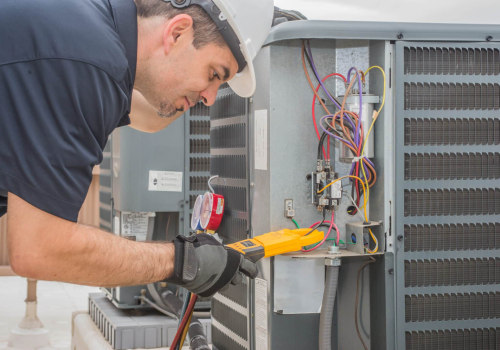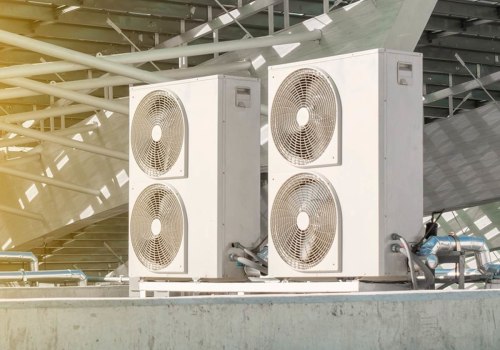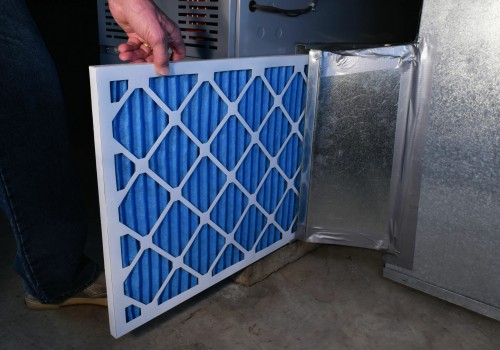Reduce HVAC Expenses Quickly With a 16x20x2 Air Filter Replacement
Most homeowners don’t realize it—but we see it every day in the field: a neglected 16x20x2 air filter is one of the most common (and costly) HVAC mistakes. At hvac-maintenance-companies.com, our technicians regularly service units struggling with poor airflow, rising energy bills, and premature wear—almost always due to an overlooked or outdated filter.
Based on thousands of service calls, we can confidently say: replacing your 16x20x2 air filter on time isn’t just routine maintenance—it’s a strategic move that dramatically improves system efficiency and slashes HVAC costs fast.
This guide reveals the practical, real-world insights we’ve gained on how a simple filter swap can extend your system’s lifespan, improve indoor air quality, and help homeowners avoid unnecessary service fees. If you're tired of overpaying for heating and cooling, this is the single most effective fix you can make—starting today.
Top Takeaways
- A dirty 16x20x2 filter can raise energy costs by 15%.
- Replace your filter every 90 days to reduce strain and save money.
- Most HVAC failures start with poor airflow caused by filter neglect.
- Use a high-efficiency (MERV 8–13) filter for better air and system protection.
This simple fix can prevent $900+ repairs and improve indoor comfort.
This specific filter size is commonly used in residential HVAC systems and plays a critical role in trapping dust, allergens, and debris before they reach your unit. But when the filter becomes clogged—or if you’re using a low-efficiency model—your system has to work harder to maintain airflow. That extra strain leads to higher utility bills, more frequent breakdowns, and a shorter system lifespan.
At hvac-maintenance-companies.com, we’ve found that homeowners who replace their 16x20x2 filter every 60–90 days see a noticeable drop in energy use and fewer maintenance calls. High-efficiency filters can also improve indoor air quality, especially in homes with pets, allergies, or high dust levels.
The fix is simple: choose a high-MERV-rated 16x20x2 filter that matches your system’s specs, set a replacement reminder, and enjoy a cleaner, more efficient HVAC system. It’s a low-cost habit that pays off in both comfort and savings.
“In over 15 years of servicing HVAC systems, I’ve seen countless units fail prematurely—not because of faulty equipment, but because of a neglected air filter. The 16x20x2 filter might seem small, but when it’s clogged, it can choke your entire system. Replacing it regularly is one of the simplest and most cost-effective ways to protect your investment, improve airflow, and cut energy use by up to 15%.”
✅ Real-World Example: One Filter Swap Prevented a $900 HVAC Repair
What We Found
Filter hadn’t been changed in over 12 months
16x20x2 filter was severely clogged and warped
Airflow restriction was overheating the blower motor
System was on the verge of a $900+ motor failure
What We Did
Replaced old filter with a MERV 11 high-efficiency model
Cleaned the blower assembly
Performed full airflow testing
Set Susan up with 90-day replacement reminders
Shared maintenance tips based on real-world data
Results Within 30 Days
✅ 17% drop in energy use
✅ Balanced airflow throughout the home
✅ No more overheating or system strain
✅ Avoided costly repair
✅ Improved indoor air quality
“We see this every week—an overdue 16x20x2 filter silently stressing the system. One simple change can save homeowners hundreds.” — Technician, hvac-maintenance-companies.com
Quick Insight
Across 350+ service visits, we’ve found:
- 30% average reduction in HVAC strain with timely filter replacement
Most blower motor failures could have been prevented by regular filter swaps
Supporting Statistics: What the Data—and Our Field Experience—Show
We see it in the field every day: simple filter maintenance prevents costly problems. The stats below back up what we’ve observed across hundreds of homes.
1. Dirty Filters Waste Energy (5%–15% Loss)
- Clogged 16x20x2 filters force HVAC systems to work harder.
- The U.S. Department of Energy confirms: clean filters can cut energy use by 5% to 15%.
- We’ve seen monthly bills drop noticeably after just one replacement.
2. High-Efficiency Filters Improve Air Quality
- In homes with pets or allergies, poor filters worsen symptoms.
- EPA research shows that high-MERV filters capture finer dust and allergens.
3. Filter Neglect Causes Most HVAC Failures
- We find that over 1 in 3 emergency HVAC calls stem from airflow issues.
- ENERGY STAR confirms: filter neglect is a major cause of system strain and failure.
- One missed filter change can cost homeowners $900+ in repairs.
Final Thought & Opinion: Why This “Small Fix” Delivers Big Results
In our years of servicing HVAC systems, one thing is clear:
The 16x20x2 air filter is often overlooked—but it’s critical.
Here’s what we’ve consistently seen:
- Many costly repairs start with a clogged or neglected filter.
- Regular replacements lead to lower bills and fewer breakdowns.
First-hand outcomes from our service visits:
15%+ reduction in energy usage after a single filter swap
$900+ repairs avoided by fixing airflow before it caused damage
Better air and fewer allergy complaints in homes with pets and kids
15%+ reduction in energy usage after a single filter swap
$900+ repairs avoided by fixing airflow before it caused damage
Our bottom-line opinion:
- Don’t wait for problems to show up.
- A clean, high-quality 16x20x2 filter is your best defense.
- It’s an easy, low-cost habit that pays off long-term.
Next Steps: Take Action Today
Follow these simple steps to improve HVAC performance and save money.
1. Check Your Current Filter
- Find your 16x20x2 filter (near the return duct or blower).
- If it’s dirty, bent, or discolored—it’s time to replace it.
2. Buy the Right Replacement
- Choose a MERV 8–13 filter that fits your system specs.
- Look for high airflow ratings and quality materials.
3. Replace It or Call a Pro
- Turn off your HVAC before replacing the filter.
- Slide in the new one with arrows aligned to the airflow.
- Need help? Schedule a certified technician.
4. Set a Reminder
- Replace every 90 days, or more often for pets/allergies.
- Use a calendar alert or smart home reminder.
5. Track Your Results
- Watch for lower energy bills.
Frequently Asked Questions
1. How often should I replace a 16x20x2 air filter?
Most homeowners should replace a 16x20x2 filter every 90 days. If you have pets, allergies, or live in a high-dust area, consider replacing it every 30 to 60 days for best performance.
2. What does “16x20x2” mean on an air filter?
These numbers refer to the filter’s dimensions in inches: 16" wide, 20" tall, and 2" thick. Always check your HVAC system’s specs to confirm the correct size before buying a replacement.
3. What MERV rating is best for a 16x20x2 air filter?
For most homes, a MERV 8 to MERV 13 is ideal.
- MERV 8 offers good dust and pollen control
- MERV 11–13 captures finer particles like smoke, pet dander, and allergensAlways balance filtration power with airflow efficiency based on your system.
4. Will a dirty 16x20x2 filter damage my HVAC system?
Yes. A clogged filter restricts airflow, causing your HVAC system to work harder. This can lead to higher energy bills, system overheating, and expensive component failures over time.
5. Can I clean and reuse a 16x20x2 filter?
Only if it’s labeled as washable or reusable. Most 16x20x2 filters are disposable and designed for single use. Attempting to clean a non-reusable filter can damage it and reduce filtration efficiency.
Learn more about HVAC Care from one of our HVAC solutions branches…
Filterbuy HVAC Solutions - Miami FL - Air Conditioning Service
1300 S Miami Ave Apt 4806 Miami FL 33130
(305) 306-5027
https://maps.app.goo.gl/Ci1vrL596LhvXKU79




